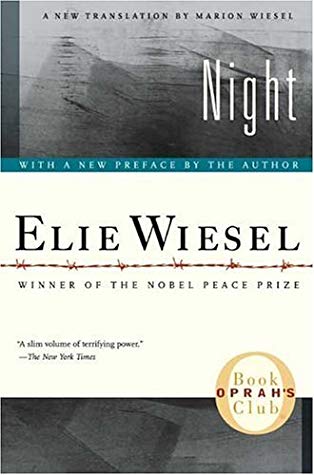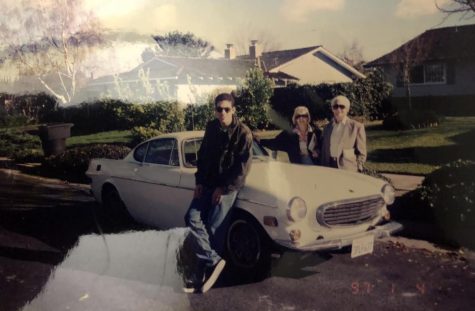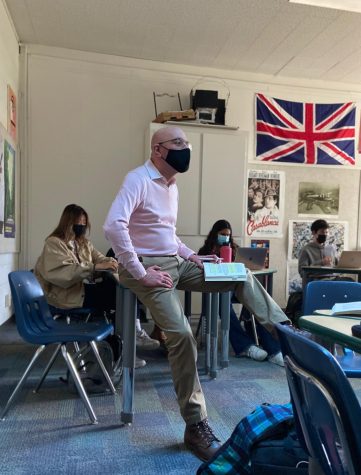In conversation with upper school Literature of the Holocaust teacher, Holocaust survivor’s grandson
December 3, 2021

“To forget would be not only dangerous but offensive; to forget the dead would be akin to killing them a second time.”
These words, penned by Holocaust survivor and author Elie Wiesel, are a part of his internationally acclaimed memoir “Night,” one of the texts studied in upper school English teacher Ohad Paran’s Literature of the Holocaust semester elective class.
According to Yad Vashem, the World Holocaust Remembrance Center, Holocaust survivors continue to experience varying degrees of difficulty on a day-to-day basis, with each survivor reacting to life postwar in a different manner.
But long before he even began teaching the depths and nuances of what history brands as the Holocaust, Paran spent his childhood years with a grandfather who he did not know was a Holocaust survivor until the age of 11. Though Paran spent days in school learning the historical facts of the Holocaust — such as the dates of each battle and camp liberation — he only began to connect his grandfather to the storyline when he put into perspective his grandfather’s age during World War II.
Paran’s grandfather spent the majority of his twenties in three of the “worst and most notorious” Nazi concentration camps: Treblinka, Auschwitz and Dachau.
“He survived all of that, and he built an incredible life for himself and my grandmother and my father in Israel after that,” Paran said. “But only when I asked him did he tell me that he was [in the camps] since he never really shared the details until very, very late in his life.”

Paran’s grandfather only received up to a fifth-grade education, but in his later life he helped found the Israeli National Health System, a project he started working on when he was 19.
“I always wanted to do the [Literature of the Holocaust] class to honor his memory,” Paran said. “He exited the Holocaust with what seemed to be no PTSD, no anger, no animosity towards people. I found the story that he told of from when he was born, to what happened to him during the Holocaust, to the life that he ended up building in Israel to be so incredible.”
From this first survivor story, Paran began reading the stories of others, determined to connect the past with the present, the timeline of his grandfather with his own.
“The common thread I found was that before the Holocaust, [survivors] were completely ordinary people who were not special in any way,” Paran said. “Yet, somehow, they were thrown into these circumstances that were totally insane, they found a way to survive in the face of atrocities that are hard to wrap your head around and most of them came out of that and were able to build a life of relative success. That, to me, is unbelievable.”
According to Paran, the human ability to internalize varying methods of coping with PTSD and trauma is a nuanced and heavy subject, but through his class and its texts, he hopes his students can begin to understand the Holocaust’s effects on the mental health of survivors after the war.
“That silence also led to a lot of people not being able to be as successful as they could have been if there had been a culture of openness around trauma and mental health,” Paran said, referring to a subject he highlighted during a class period. “Over the years, my class has evolved a little bit — to not only talk about the concrete events of the Holocaust but also to look at the mental health aspect that the authors explore and to talk about how we cope with any kind of trauma that we have in our lives.”
